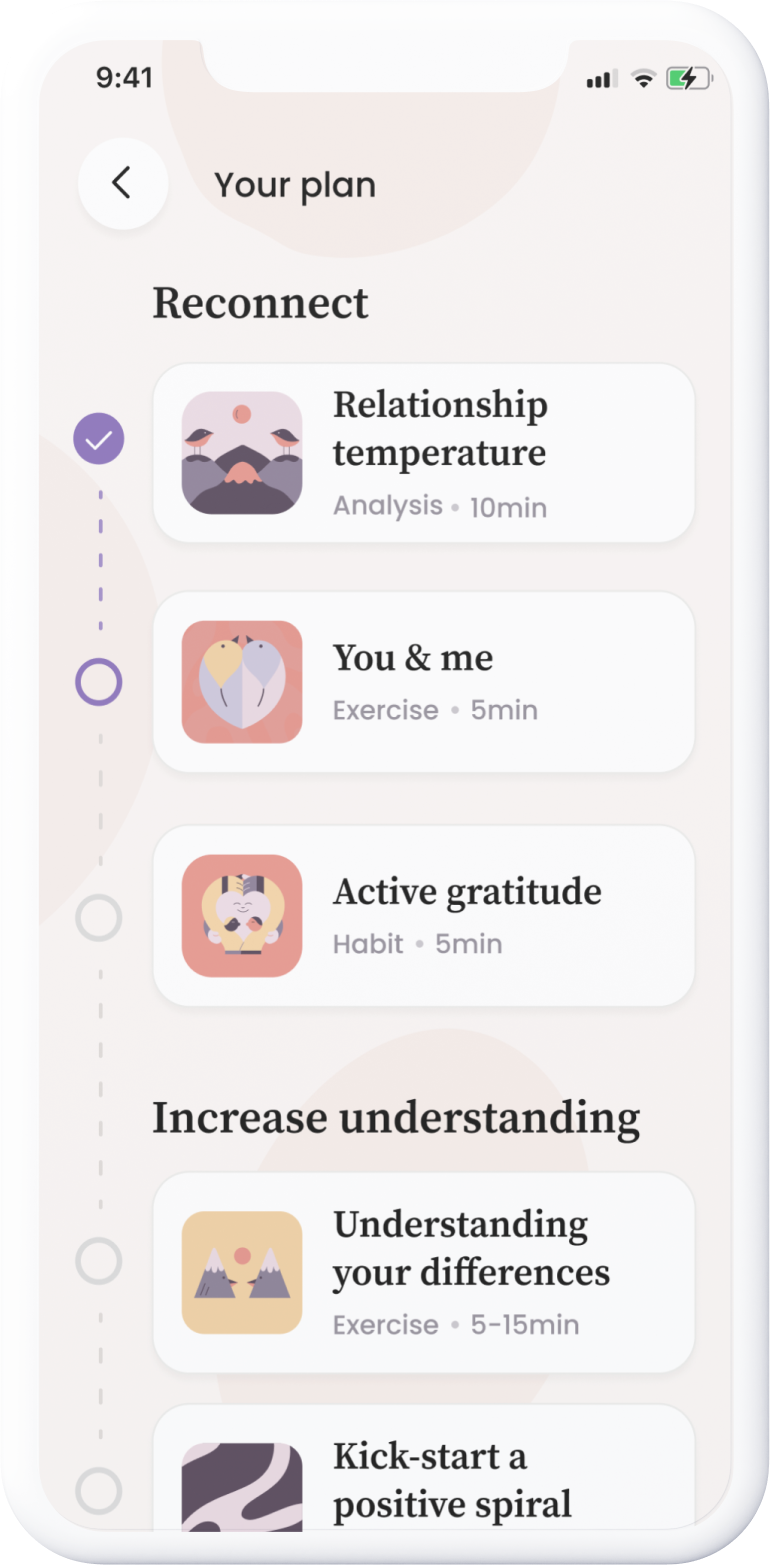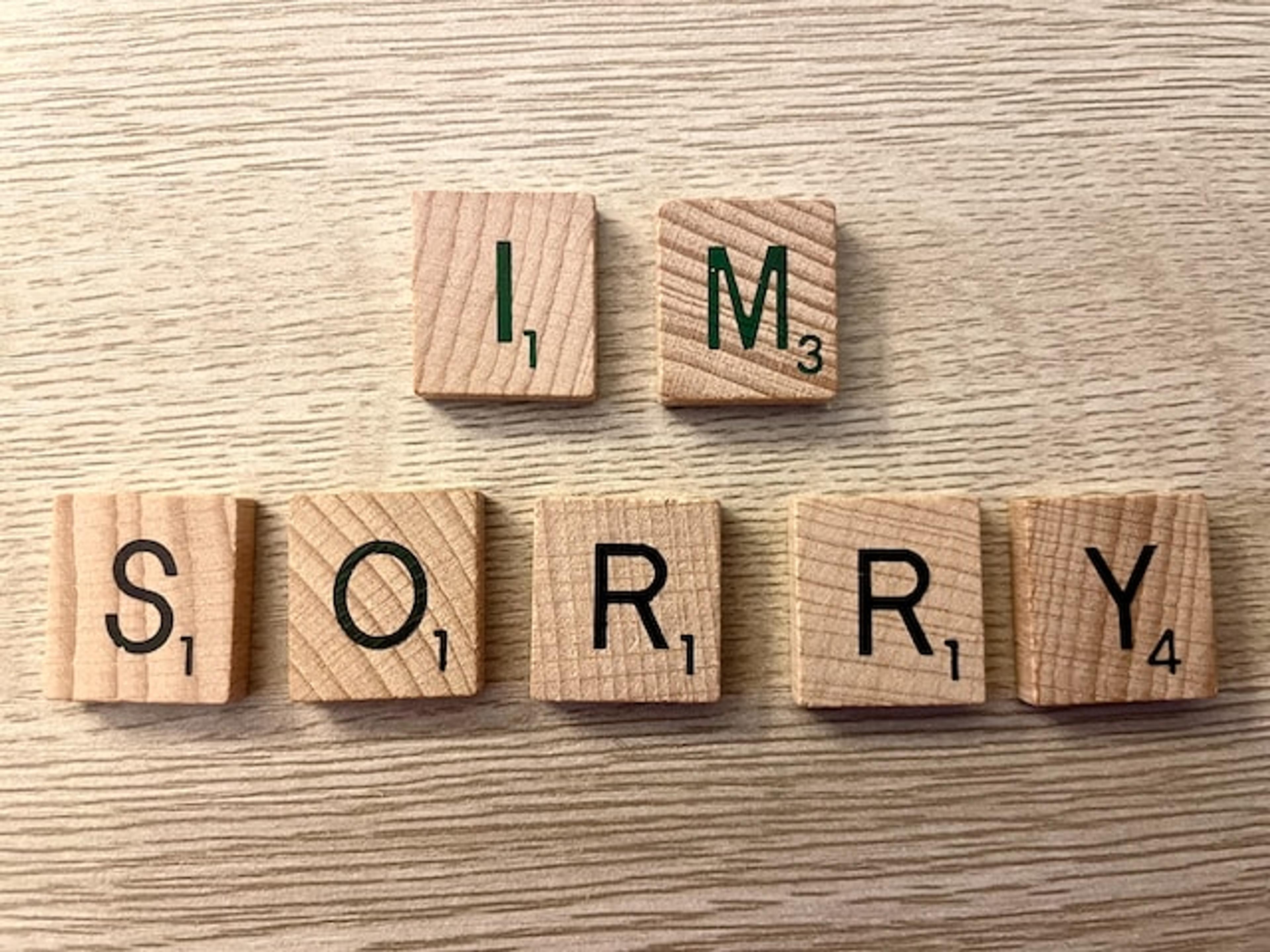How to Improve Communication in a Relationship
Key Strategies for Enhancing Relationship Communication- 19 October 2023
- 5min

Challenges in relationship communication
Do you want to know how to communicate better in your relationship or with your spouse? It isn’t always easy to get through to your partner, especially when you have different opinions or needs.
Both people in a relationship are responsible for the communication – and that means both expressing yourself in a way that lands well, and listening in a way that makes the other person want to open up.
Differences in opinions, needs, and unresolved concerns can lead to communication difficulties, creating tension in a relationship. Feeling unheard or misunderstood is a common issue. Without effective communication, minor issues can escalate into major conflicts, causing distance and strain in the relationship.
The art of meaningful communication
In the context of a relationship, communication involves expressing yourself in a way that your partner can comprehend and demonstrating your willingness to listen. Here are four key strategies to improve your communication skills and resolve relationship issues:
1. Don’t assume a bad intention
We often assume we understand our partners' thoughts and feelings, but in reality, our perceptions are influenced by our own emotions. To maintain a strong connection, we must stay curious about each other and keep the lines of communication open.
If your partner says or does something that you perceive as wrong, do not directly assume that there is a malicious intention behind the action. Try to put yourself in your partner's perspective before acting on your interpretation. Be curious and ask questions instead of mind-reading!
2. "I" statements
Rather than placing blame or making accusations, focus on expressing your feelings, thoughts, and reactions.
For example, instead of saying, "You never help with meal planning! I'm always doing all the housework," try a less confrontational and more constructive approach like, "It stresses me out when I'm solely responsible for planning meals." This approach invites a productive conversation without triggering defensiveness.
The most important thing in an “I” statement is to do your best to express your feelings. What is going on inside of you, emotionally?
Try to delve a little deeper into your own feelings. It’s often easy to notice that you’re angry, annoyed or frustrated, but are there other emotions that also come into play? Feelings of disappointment, worry or sadness are often experienced as gentler and less confrontational and can be easier to take in and understand than anger or irritation. They don’t spark the same kind of anger or irritation in return.
3. Actively listen
True listening goes beyond hearing words; it involves paying attention to how your partner communicates, understanding the emotions behind their words, and being fully present in the moment.
Give your partner your undivided attention by putting away distractions, making eye contact, and providing verbal cues like nodding or affirming sounds ("Mm-hmm").
You can also engage in "mirroring" by summarizing what your partner has shared in your own words, demonstrating your active involvement in the conversation.
4. Validate your partner's experience
Resist the urge to immediately offer solutions or share your perspective. Allow your partner to express themselves fully. By doing so, you convey that you respect and value their feelings.
Stay curious and ask questions to gain a deeper understanding, even if their viewpoint initially appears incomprehensible. Remember that every perspective, no matter how different, has its own validity.
Improve communications - How to avoid the pitfalls
There are some common pitfalls into which all of us stumble from time to time. It’s wise to give them a little extra thought when addressing sensitive topics. Three examples of things to avoid if you want to improve communication in your relationship:
1. Accusations or generalizing descriptions
Avoid using harsh and potentially hurtful words, implying that your partner doesn’t care about you, or generalizing descriptions. (“You’re worthless/selfish/ hopeless!”).
2. Bringing up old wrongs
The impulse to draw parallels between previous conflicts and a current one is understandable, but it’s rarely helpful in the moment. Often it only fuels the negative vibe.
3. Overusing the words “always”/“never”
For example, resist saying “You never listen to me!” or “You always leave dishes in the sink!.” That’s probably not entirely true, even if it feels that way at the time.
The problem is that a statement like this easily gets mixed up in the substance of the matter. Anyone who is told “You never do x!” is unlikely to accept the accuracy of what they see as an unfair accusation. Just like that, an argument is underway.








